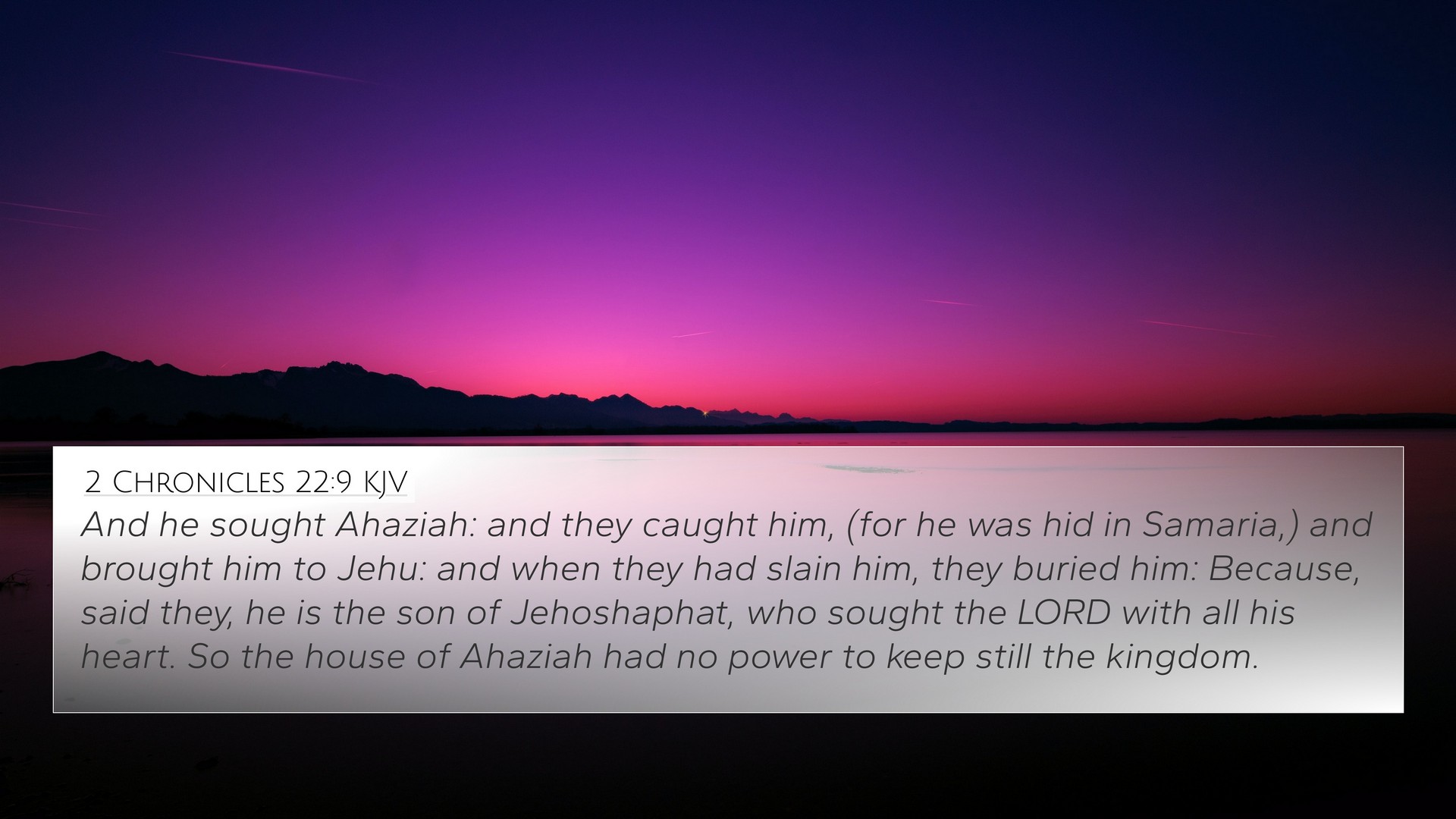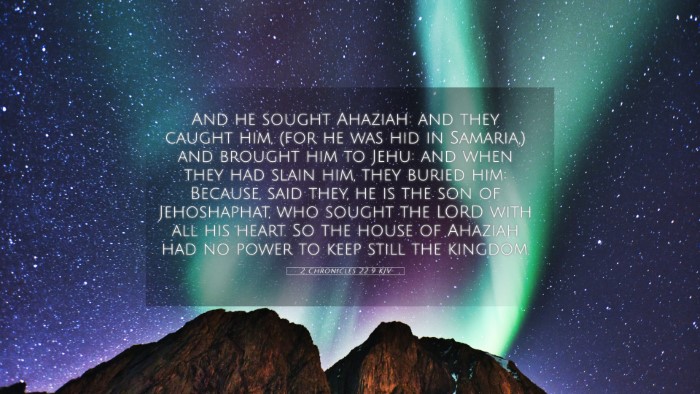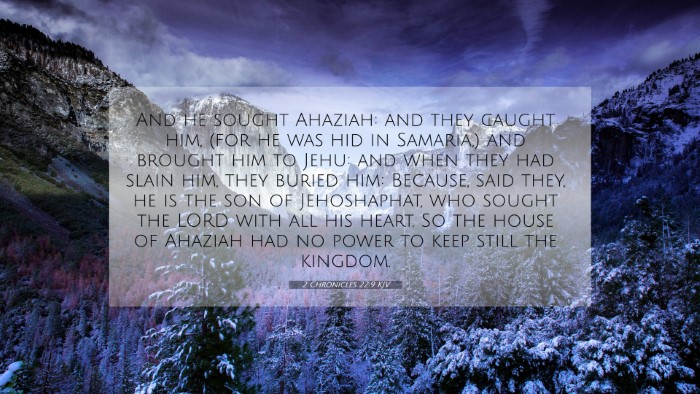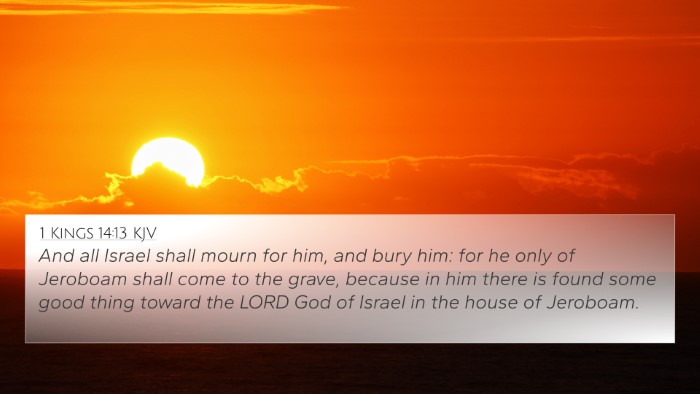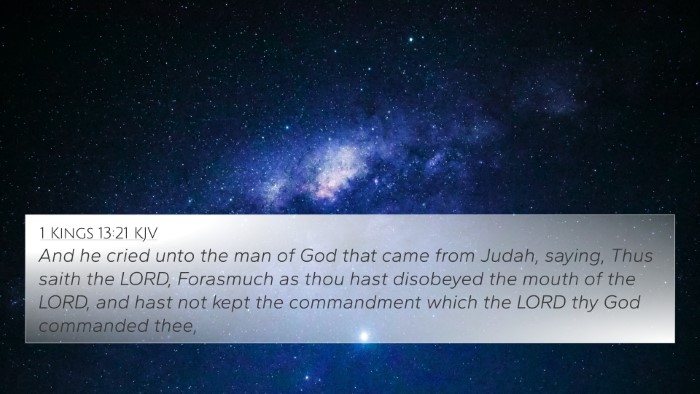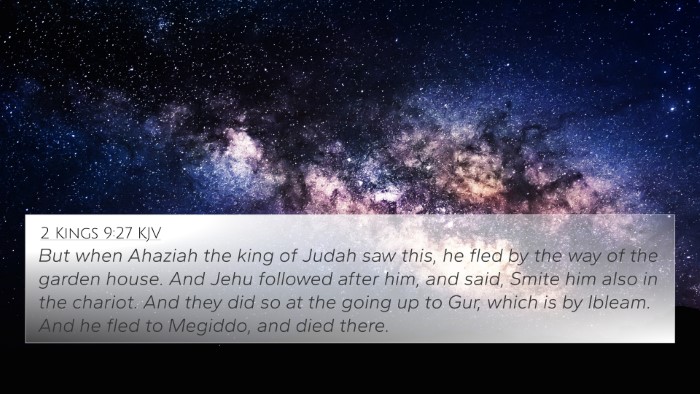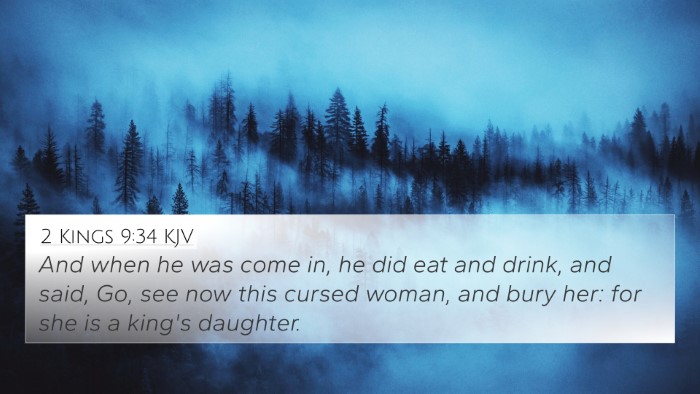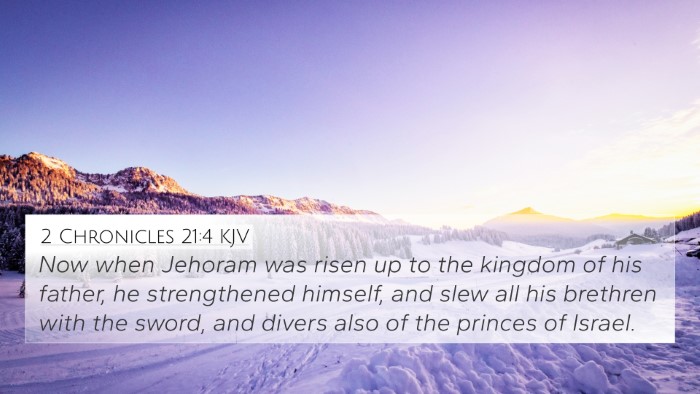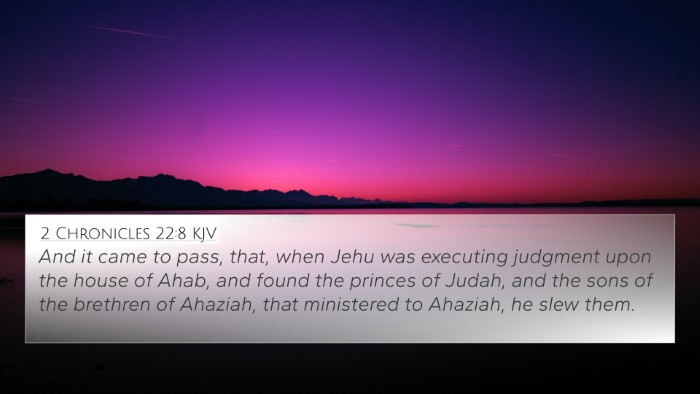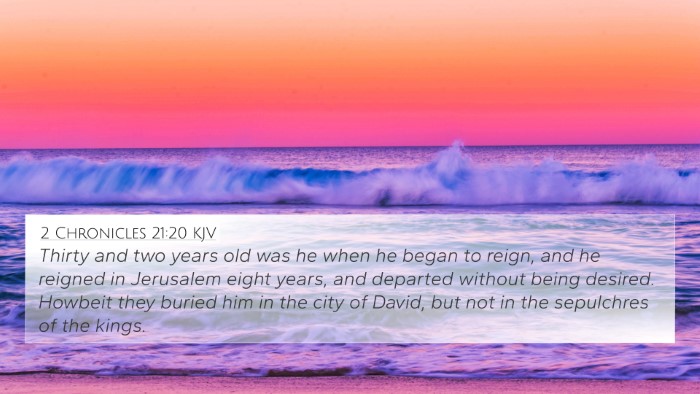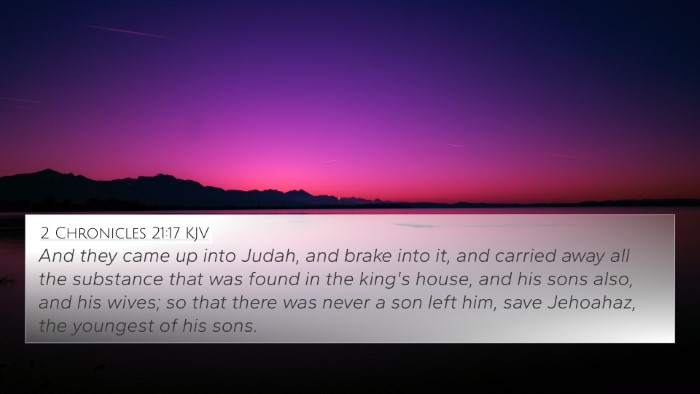Bible Verse Explanation for 2 Chronicles 22:9
Bible Verse: “And he sought Ahaziah: and they caught him, (for he was hid in Samaria,) and brought him to Jehu: and when they had slain him, they buried him; because, said they, he is the son of Jehoshaphat, who sought the Lord with all his heart. So the house of Ahaziah had no power to keep still the kingdom.” (2 Chronicles 22:9)
Meaning and Interpretation
This verse highlights a significant moment in the history of Judah and Israel, revolving around the context of King Ahaziah's fate. Ahaziah's pursuit by Jehu—orchestrated by divine judgment—signifies the consequences of disobedience to God’s commandments.
Commentary Insights
-
Matthew Henry:
Henry emphasizes that Ahaziah’s death was not just a political act, but rather a spiritual consequence of aligning himself with the wicked. Ahaziah's alliance with the house of Ahab led to his own downfall, illustrating that those who lead lives contrary to God’s will face inevitable judgment.
-
Albert Barnes:
Barnes notes the irony of Ahaziah hiding in Samaria, a place associated with the opposition to God's prophets. The capturing and execution of Ahaziah serve as a divine retribution for his unfaithfulness and the sins of his lineage, emphasizing the theme of divine justice throughout scripture.
-
Adam Clarke:
Clarke elaborates on the significance of burial in this context. The statement about Jehoshaphat seeking the Lord with all his heart stresses the contrast between the former king’s devotion and Ahaziah's failure. The passage underlines generational consequences in leadership where the faithfulness of one can affect the fate of the next.
Cross-References for 2 Chronicles 22:9
This verse can be linked to several other scripture passages, enhancing the thematic connections within the Bible:
- 2 Kings 10:1-14 - The account of Jehu's rise against the house of Ahab.
- 2 Chronicles 21:4 - Jehoram's reign and the downfall of those who turn against God.
- 1 Kings 22:51-53 - Ahaziah's introduction highlights the continuation of Ahab's evil legacy.
- Isaiah 48:22 - Speaks to the consequences of unrepentant behavior and seeking peace.
- Jeremiah 17:10 - Emphasizes that God knows the heart, linking it to the evaluation of kings.
- 2 Chronicles 20:31-32 - The depiction of Jehoshaphat’s faithfulness provides context for Ahaziah's contrasting wickedness.
- Matthew 7:2 - Discusses the principle that the measure of judgment will be applied to those who judge.
- Galatians 6:7 - Points to the biblical principle of sowing and reaping, which Ahaziah failed to heed.
- Hebrews 12:29 - Connects to God as a consuming fire, representing holiness that contrasts with Ahaziah's unfaithfulness.
Thematic Connections
The narrative of Ahaziah's life and death opens important discussions on themes such as:
- Divine Judgment: The consequences for those who stray from God’s will.
- Faithfulness vs. Unfaithfulness: A comparison between the lives of faithful leaders like Jehoshaphat and unfaithful ones like Ahaziah.
- Continuity of Legacy: How the actions of one generation can affect subsequent generations and their leadership.
- Judgment on Sin: The overarching biblical theme that God will ultimately judge those in positions of power who are corrupt or disobedient.
Conclusion
In conclusion, 2 Chronicles 22:9 serves as a potent reminder of the significance of faithfulness to God’s commandments. The capture and death of Ahaziah are reflections of divine justice, reinforcing the idea that leadership comes with the responsibility to seek the Lord and maintain righteousness, lest one fall victim to the consequences of sin.
Understanding this verse within its broader biblical context allows believers to appreciate the intricate connections between scripture, facilitating deeper study and reflection. Tools for Bible cross-referencing, such as Bible concordances and guides, can enrich one’s knowledge and foster a stronger spiritual foundation.
